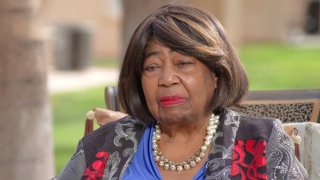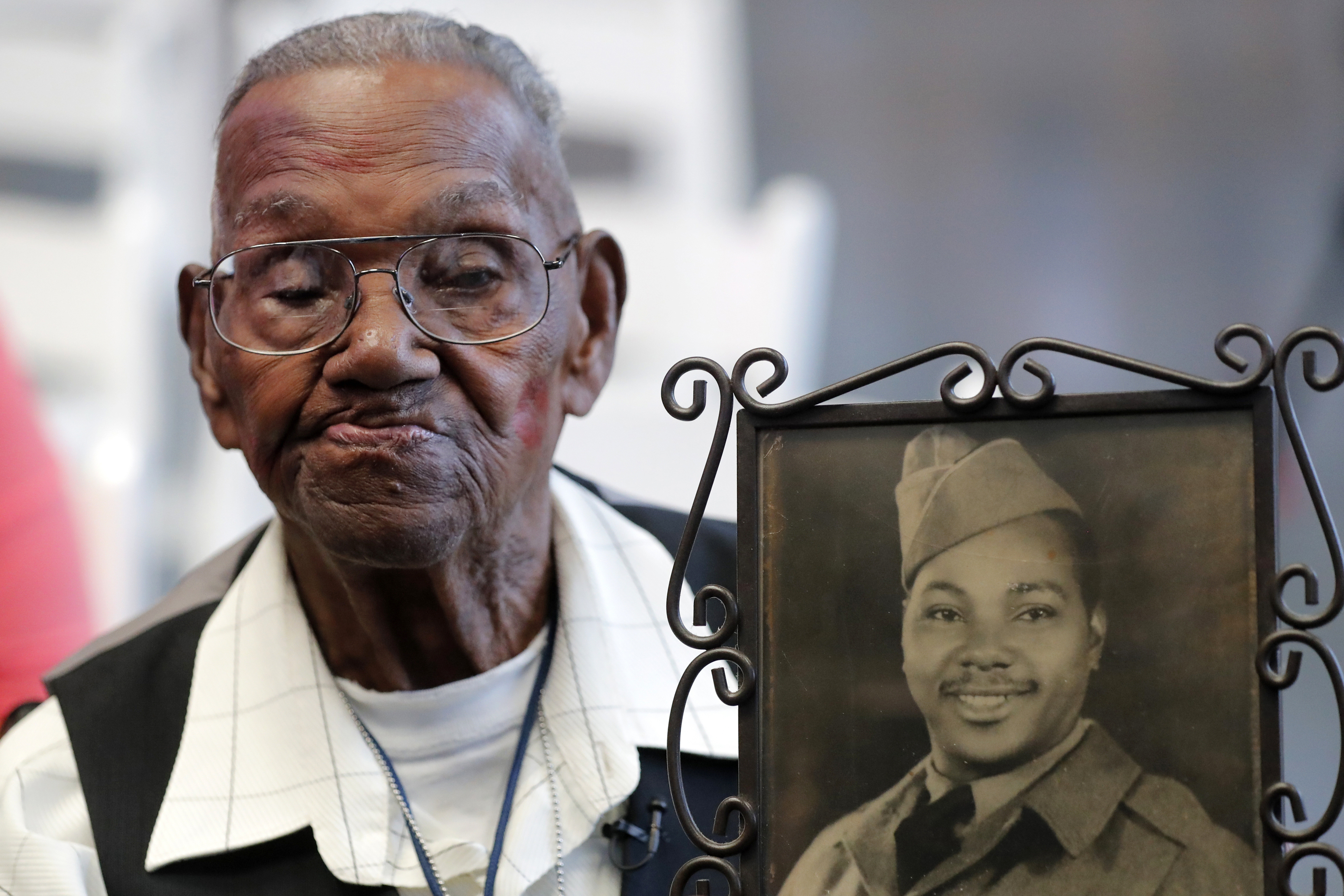
Watch NBC 5 free wherever you are
Amid the fighting and chaos of World War II, thousands of pieces of mail sent to United States troops began to pile up.
To sort through more than two years of letters that troops desperately needed to feel connected to home, an army unit called the 6888th Central Postal Directory Battalion, also known as the “Six Triple Eight,” was formed. The pivotal group became the only all-female, all-Black unit sent overseas during the gruesome war.
Get top local stories in DFW delivered to you every morning with NBC DFW's News Headlines newsletter.
Almost 80 years after these women paved the way for other Black servicemen and women, TODAY’s Al Roker sat down with 99-year-old Lena King, one of six surviving members of the unit, as part of Together We Rise, a 31-day package highlighting amazing Black people, experiences, allies, and communities that shape America and make it what it is today.
King opened up about how the women were able to complete their seemingly impossible task.
‘No mail, low morale’
King enlisted in the military after a childhood friend was shot down in battle. “I was expecting to do something that would aid our country,” she explained. “I felt that I needed to contribute something.”
Although the U.S. and the military were still segregated at the time of WWII, millions of African-Americans registered for the draft or volunteered to serve their country.
On Feb. 3, 1945, King's unit set sail for Europe to sort and route millions of pieces of undelivered mail. They arrived at a warehouse in Birmingham, England that contained 10 airplane hangers.
The 99-year-old recalled seeing, “just piles and big sacks of unopened mail.” She added, “Some had been, you know, sort of gnawed by rats and so forth.”
The team created a sorting system of three 8-hour shifts, 24 hours a day, every day. King revealed that some of the women worked 78-hour weeks.
She laughed and said the group’s motto was, “No mail, low morale.”
Some of the letters had common names such as Robert or John so the women had to spend time reading the messages to figure out a family name.
The Six Triple Eight, with 855 total members, were told they only had six months. The women accomplished their goal in half that time, sorting approximately 17 million pieces of mail.
“We had promised that we could get it done," King said.
Either Girl Scout or Salvation Army
Another member of the crew was specialist Odessa Taylor Marshall, who died in 2017. Her son, Jason Marshall, said his mother was born in 1923 and joined the army around the same time as King.
“Anytime you can get out of Tennessee or out of the south, you just run with the occasion and get out to get a better life," he explained.
Although he is also a veteran, Jason Marshall didn’t learn about his mother’s life in the army until he was 55.
After seeing a photo of her in uniform, he thought she was “either Girl Scout or she was working for the Salvation Army.” He laughed and added, “That’s the only time I see women in uniform.”
He finally understood the gravity of his mother’s service when they attended his brother’s funeral at the Arlington National Cemetery in Virginia.
“When we were walking into the arena, she was getting saluted by everyone that passed us,” he recalled. It was then he knew that she was “the real deal.”
'There were no parades. There was no thank you.'
The Six Triple Eight were celebrated and appreciated in Europe, but when they returned stateside they didn’t feel welcomed as they arrived in an America with Jim Crow segregation.
“There were no parades. There was no thank you. There was no nothing," King said.
She said the experience felt “so disappointing.”
Speaking about the importance of the battalion unit, King explained, “Although we didn’t have guns, (it) was a moral victory.”
“I think our motivation was to feel that we were making a contribution,” she said. “We wanted to show proof that we loved our country, even if they didn’t love us back all the time.”
Edna W. Cummings, a retired Army colonel and current citizen advocate, told TODAY she did not learn about the Six Triple Eight until after her service concluded in 2015 or 2016.
Now, she is championing to get the unit a Congressional Gold Medal.
“We’ve heard about the Tuskegee Airmen and the Montford Point Marines, but there’s been little mention about the contributions of Black women in World War II.”
In April 2021, the Senate passed legislation to grant the women this acknowledgement. Next week, the House of Representatives is set to vote on the bill.
Marshall made it his life's work to keep the memory of his mother's unit alive. Before she died, his mother gave him an album with memories from her time in the army.
“I love history and I love telling African American history,” Jason Marshall said. “I’m gonna continue to teach it. And it’s gonna be the most valuable exhibit that I will display.”
Related:
This story first appeared on TODAY.com. More from TODAY:



